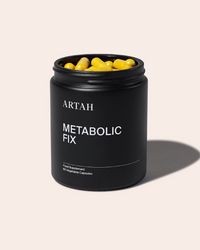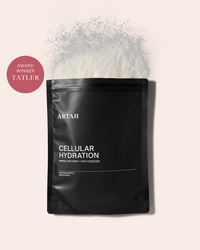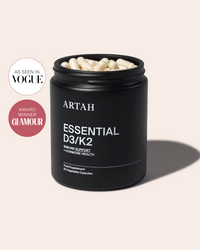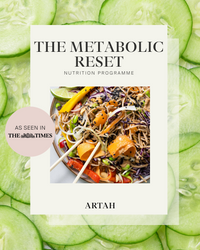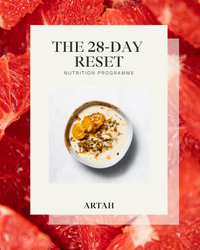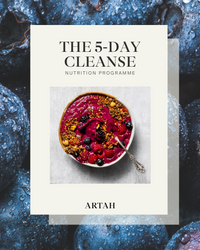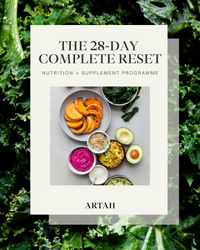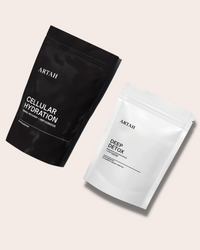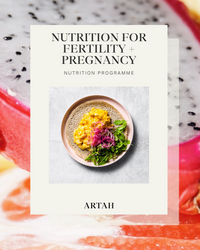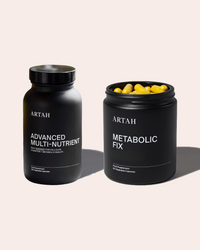The Quick-Fire Blood Sugar Quiz
There’s a big misconception that blood sugar is all about weight, and whilst it’s true that it does influence our body composition, maintaining healthy, stable blood sugar is about so much more. What’s also true is that we can suffer from symptoms of erratic blood sugar at any weight, so it’s time to disentangle the two. From erratic moods, headaches, and anxiety to brain fog, PMS and fatigue throughout the day, your blood sugar is more important than you think. How do you know if it’s out of whack? Take the blood sugar quiz to find out.
THE UPS AND DOWNS OF GLUCOSE
Blood sugar (or blood glucose) needs to be tightly regulated in the body for it to function well. If it gets too high, we release more insulin to clear it out of the blood. If it gets too low, we release stress hormones like cortisol and adrenaline to free up stored glucose for energy. If you’ve been following the continuous glucose monitor trend at the moment, you’ve probably heard people talking about ‘spikes.’ What does this mean exactly? Well, for things to operate smoothly, we want a gradual rise in blood glucose and a gradual fall. If something 'spikes' our blood sugar, it means that it rises quickly – too quickly, and often too high, for our body to handle effectively. So, say you eat something like a sugary muffin, candy bar or even a sweetened breakfast cereal; when your blood sugar spikes, your body will then overproduce insulin to clear the glucose from the bloodstream. It will go into our cells if we need it for energy, or it will be stored as fat for later use. But – here's the catch – you don’t need to be eating lots of overt sugar to have poor blood sugar control. A diet low in protein and fat, but high in carbohydrates, or chronic patterns of under-eating for example can send your blood sugar astray.
There are two main issues with a ‘spike’ in blood sugar; the first is that our blood sugar can fall just as quickly, sometimes even lower than it was before we ate. Cue sudden - and often anxiety-fuelled - hunger, fatigue, shakiness, lack of concentration, lightheadedness and cravings. The second is that over time, exposure to too much insulin can contribute to anxiety, mood issues, fertility, changes in body composition, immunity and of course, an increased risk in chronic illness, metabolic syndrome and type 2 diabetes. Likewise with cortisol, if we experience daily spikes and drops in blood sugar, whether from diet, lack of calories, or constant sugar, it can leave us in a constantly stressed state.
THE BLOOD SUGAR QUIZ
This quiz is designed to give you a broad sense of your blood sugar stability; it is not a diagnostic tool, but instead can help you understand if balancing your blood sugar is something you may benefit from focusing on. If you are concerned about your health, it’s important to seek medical advice.
Rate the following questions on the following scale:
0 = never 1 = sometimes 2 = often 3 = always
-
Crave sweets/sugar in the day
-
Irritable or anxious when hungry
-
Irrational when hungry
-
Lightheaded or shaky when hungry
-
Fatigue soon after eating
-
Agitated or short-tempered
-
Hungry soon after eating
-
Constant hunger
-
Needs caffeine to keep going
-
High refined carbohydrate, low protein diet
-
Poor concentration
-
Eating sweets doesn’t satisfy sweet cravings
-
Difficulty losing weight
-
Excess weight around the abdomen
If you scored 10 or more, blood sugar stability may be an issue for you. Here’s what to do to help.
FOOD:
- The first step is to remove the more obvious forms of sugar in your diet and start replacing them with more nutritious options. Instead of sweets or baked goods, have real fruit, but pair it with a source of fat or protein like nut butter or nuts/seeds.Try baking your own breads, loaves and muffins so that you can inform the ingredients and add fibre, protein, and more natural forms of sweetness.
- Be mindful of your carbohydrate consumption. Don’t worry, you don’t need to cut out all carbs; just start replacing white with whole grain options, beans or legumes, and making sure that they aren’t unopposed. This means that they're paired with something that can help blunt the sugar response, so try having protein and fat alongside them to keep that rise in blood sugar nice and gradual.
- Try to focus on upping your protein intake, and get at least 20g (ideally up to 30g) at breakfast at your first meal of the day. This is so important for blood sugar stability and can metabolically set you off on the right foot for the whole day.
- If you need a more structured approach, try the Metabolic Reset, our 21-day nutrition programme with over 90 recipes to help you regain metabolic flexibility.
SUPPLEMENTS:
- Metabolic Fix contains Berberine, clinically proven to improve blood glucose control and cellular metabolism, with other blood sugar essentials like Chromium, Inositol and Alpha-Lipoic Acid.
- Consider probiotic support with Enhanced Synbiotic. Our microbiome plays a big role in blood sugar regulation, so if our gut is out of balance, our blood sugar, appetite and levels of inflammation can be impacted.
- Consider Cellular Hydration, our unsweetened, and slightly tart, electrolyte blend that is a game-changer for cravings and mood, especially when you’re trying to reduce sugar.
LIFESTYLE:
- Try blood implementing blood sugar walks. Walking for 20 minutes after a meal can help reduce postprandial glucose levels, so even if it takes a while to implement dietary changes, or if you're eating more sugar than usual in the holiday period, walking can help.
- Try mindful eating. Remove tech from your mealtimes and try to chew slowly, taking breaks between bites. This can help us tune into your natural feelings of satiety and manage how much we eat. In fact, implementing mindful eating practices has been shown to reduce glycemic load (how quickly a meal will rise your blood sugar) (1). It can also improve digestion and IBS related symptoms, making it a positive practice all round.

References:
1. Miller CK, Kristeller JL, Headings A, Nagaraja H, Miser WF. Comparative effectiveness of a mindful eating intervention to a diabetes self-management intervention among adults with type 2 diabetes: a pilot study. J Acad Nutr Diet. 2012 Nov;112(11):1835-42. doi: 10.1016/j.jand.2012.07.036. PMID: 23102183; PMCID: PMC3485681.






